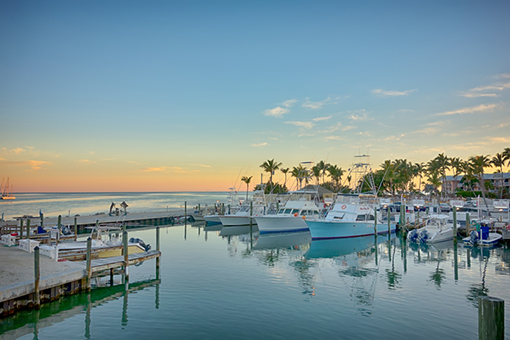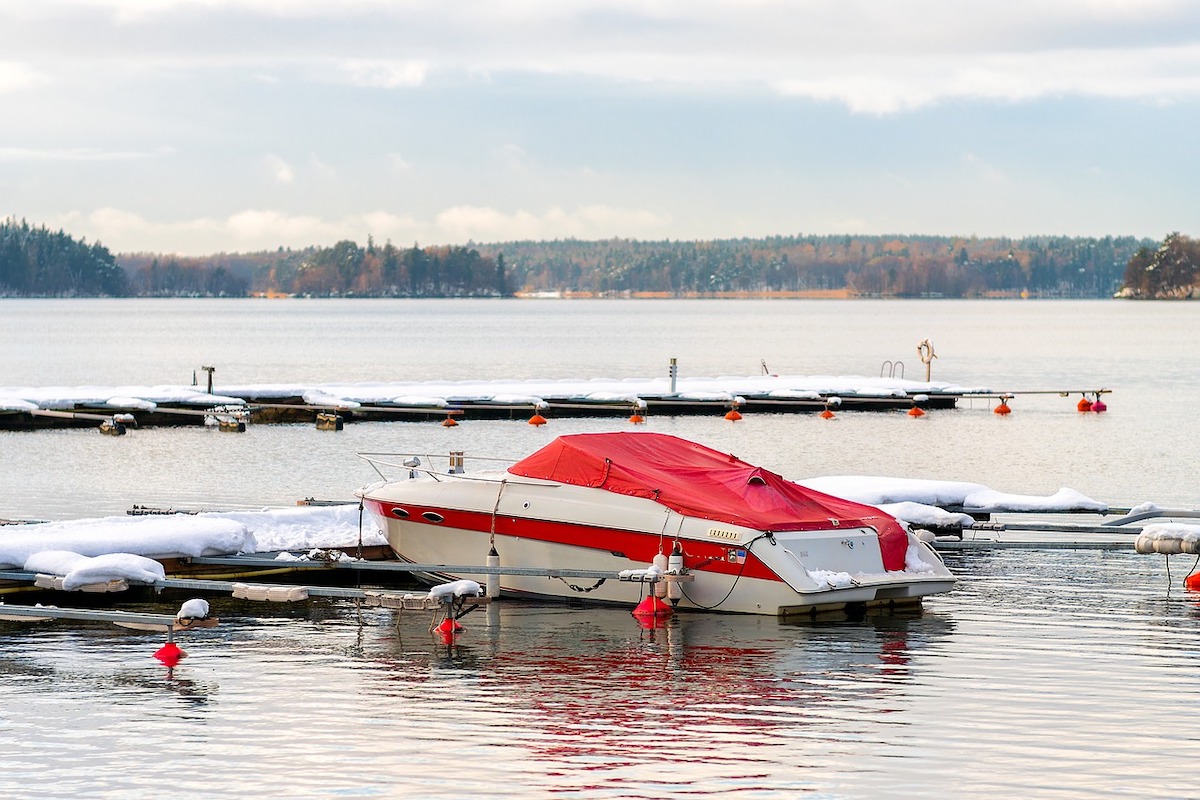The boating season doesn't need to end when temperatures drop! In fact, some of the best adventures happen during the cooler months. From day trips to weekend cruises, smart preparation keeps you comfortable on the water.
Here's a guide for staying warm on a boat while cruising and relaxing at the dock.
5 Tips for Boating in Winter Weather
1. Dress for the Elements
Cold weather feels even colder when a boat starts moving, so you'll want to bundle up.
- Wear a windproof outer garment as your first line of defense.
- Layer clothing and use ski gear from your winter closet.
- Protect yourself with a woolen watch cap, gloves, and scarf. These aren't just for the woods—they'll help you drive your boat all day or sit anchor and watch all night.
- Invest in foul-weather gear (protection for windy, stormy conditions) and ski goggles to protect your eyes in rain or sleet.
- Choose synthetic, breathable, waterproof clothing instead of sweatshirts and jeans. (Sweatshirts and jeans will not keep you warm or dry.)
And of course, don't opt for cotton clothing or bring only one pair of shoes. Cotton, once it becomes wet, will not be able to keep you warm and will cause you to lose heat more quickly. (This ultimately leads to hypothermia.) Plus, you'll want that extra pair of shoes if yours gets wet or damaged.
2. Invest in Boat Heating Options
Quite a few heating systems do wonders on boats, including reverse cycle units, ceramic electric heaters, and gravity-fed diesel options. Believe it or not, these systems can generate more warmth than your home heating. However, safety is the top priority.
Be sure to choose electric heaters with an automatic tip-over shutoff feature. Also, check your electrical system before firing up several heaters simultaneously.
Here's a pro tip for diesel heater users: Long trips burn more fuel than expected. Don't forget to check your fuel levels after extended passages. And make sure your heater gets proper ventilation to prevent carbon monoxide buildup in the cabin!
3. Utilize Alternative Heat Sources
Old-school oil lamps are a two-for-one deal, giving you light and warmth without tapping into your battery bank or diesel supply. These lamps create a cozy atmosphere and, thanks to their clean-burning oil, operate without any smell or soot. Plus, they work great as backup heat during power outages.
Pro Tip: Don't try to duplicate this effect with candles—they are a real fire hazard. If you must have candles, opt for the electric kind. They don't put out any heat, but they look great.
4. Cuddle Up with a Warm Blanket
Blankets, throws, and flannel sheets are just as comfortable on boats as they are at home.
It might sound a bit retro, but there's nothing quite like a warm wool blanket and a hot water bottle for comfort—plus, they hardly use any energy! Also, feel free to use blankets in the cockpit while you're underway or inside the boat when it's docked.
However, don't expect your blankets to smell fresh if they've been hibernating all summer. Make sure to dry clean or wash everything you intend to use beforehand, particularly if it's been tucked away on board.
5. Staying Warm on a Boat: Heat Up the Galley
Chilly days on the water? It's time to get inventive about staying warm; your boat's galley is just the ticket. Fire up the stove, whether it's electric or propane, and start cooking!
Whipping up hot soup or baking cookies is a surefire way to heat a small cabin in no time. And those mouthwatering aromas really make everyone feel right at home.
Don't leave anything unattended on the stove, especially with propane and an open flame. (And keep dish and paper towels far away.)
Safety Reminder: Always Be Aware of Hypothermia When Boating in the Cold
Hypothermia should always be top of mind when boating in winter weather.
- Watch for shivering, confusion, and slurred speech
- Monitor for fatigue and impaired movement
- Stay dry at all costs
- Drink warm liquids regularly
- Find shelter from the wind and keep your head covered
- Move around to maintain circulation
Read Next: How to Winterize a Boat
Staying Warm on a Boat: Key Takeaways
Boating in winter weather can be tricky, but with some savvy prep, you can face those challenges like a pro. Begin with the proper layers and stick to synthetic materials—cotton is a no-go. Consider adding dependable heat sources, from boat heaters to oil lamps, for that extra warmth when needed.
Additionally, it is just as important to keep safety in mind with proper ventilation and fire prevention. Cooking brings a cozy vibe to the cabin, and keeping an eye on hypothermia risks ensures you can enjoy winter boating without a hitch. Happy boating!



